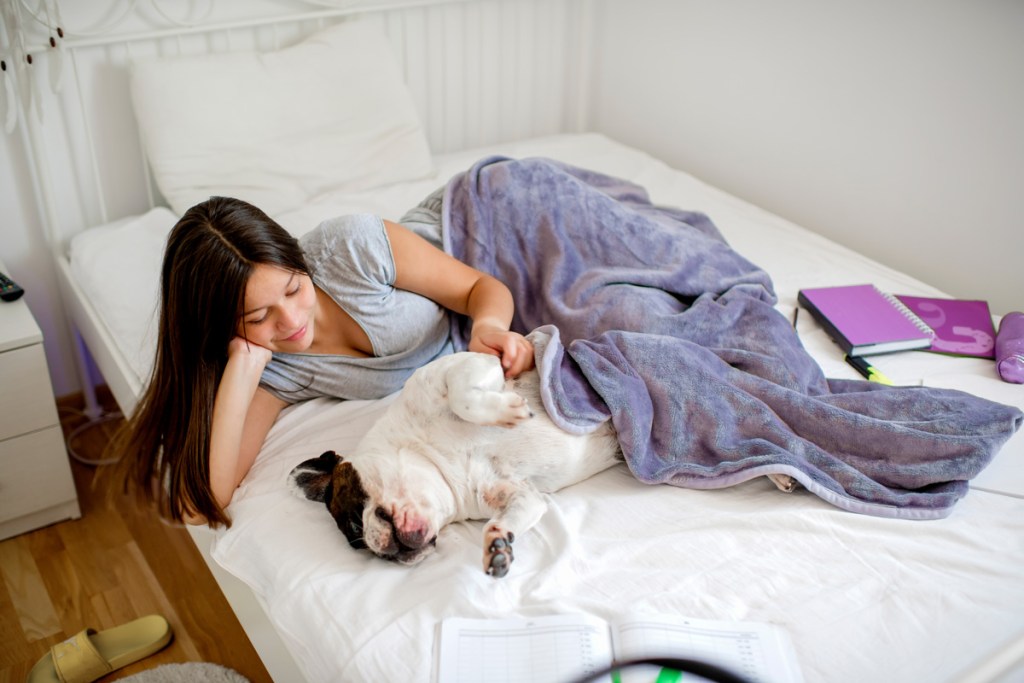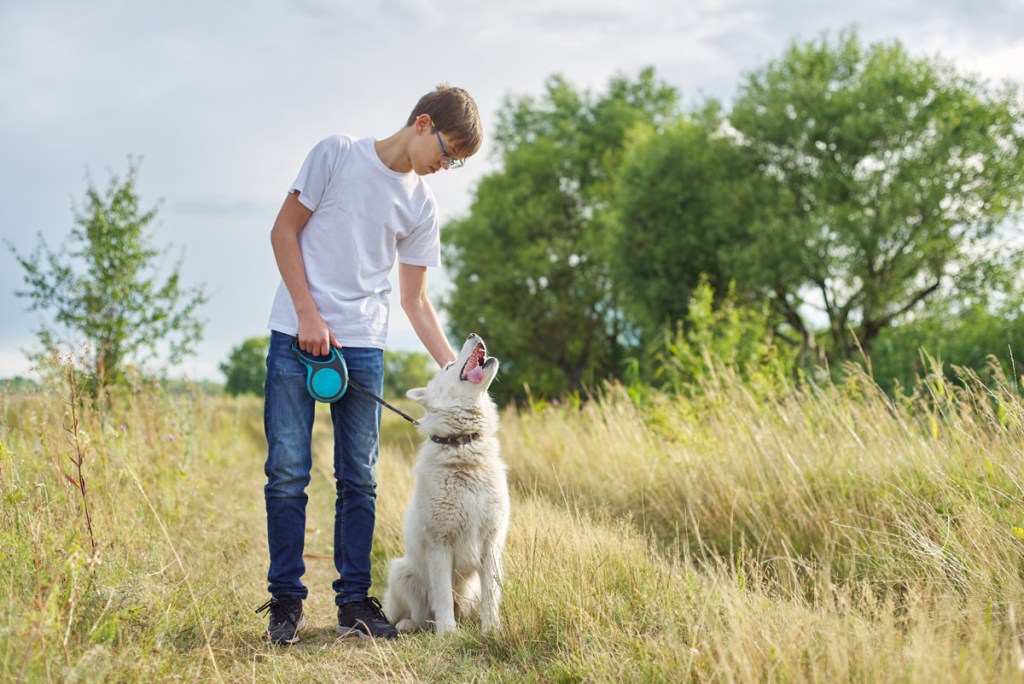Elisa was 14 when her family moved to a new neighborhood. She cried herself to sleep at night, heartbroken at having to move away from her closest friends. There was one companion, however, who remained by her side. Elisa’s dog Jingle licked away her tears and comforted the teen as she struggled to adjust to her new life. In a Petco Love article about her relationship with Jingle, Elisa says she couldn’t ask for a better friend.
There’s no doubt that pets play an invaluable role in the lives of children. In addition to loyal companions, they teach children about responsibility, trust, compassion, respect, and patience. While all age groups can benefit from a close relationship with pets, teenagers especially reap rewards when they bond with puppies or adult dogs.

Why is it good for teens to have pets?
The teenage years are hard. Adolescents deal with so many internal and external struggles. They have to cope with hormonal changes, puberty, peer pressure, conflicts with parents, and stresses from school and work. A study published in the Child and Adolescent Social Work Journal revealed that middle school-aged children reported feeling less social isolation if they had a pet, specifically a dog, in their lives.
“Pets can be a crucial source of emotional support for adolescents during a time when social relationships are often changing,” Megan K. Mueller, Ph.D., assistant professor at Tufts University, told Verywell Health. Mueller added that it’s important for parents to understand the significant role pets play in the lives of teens.
Here are just some of the ways teens benefit from having a dog.
Dogs create community connections
One Tufts University study found that teens who bond with pets may forge stronger social relationships and better connections to their communities than those who don’t have pets. In addition, teens who cared for animals engaged in more community service activities, helping friends or family and demonstrating leadership.
Dogs don’t judge
Teenagers feel judged by peers and by adults in their lives. Dogs serve as confidants, providing a wonderful outlet for teens to share their thoughts without being judged.
Dogs help relieve stress and anxiety
According to the Pew Research Center, depression has become increasingly common among American teenagers, especially girls. Caring for a dog, which includes petting, playing, and walking, can help reduce stress and depression. According to the Centers for Disease Control, pet owners are less likely to suffer from stress, anxiety, and depression than those who don’t own pets.
A dog’s friendship helps diminish loneliness
There’s a worldwide increase in adolescent loneliness, according to a study published in the Journal of Adolescence. Petting and cuddling with pets can help combat loneliness. Walking a dog around the neighborhood is a great way for teens to connect with other people in the community and make new friends, especially if they also have a dog.
Dogs keep teens active
While many teens are active in sports, others spend countless hours sitting in front of a computer or TV screen. Being a responsible pet owner means spending time playing with and walking the dog. Both activities get teenagers up and moving.
How do dogs cope with the teenage years?
Many dogs seem to have an innate ability to read human emotions and understand when their adolescent friends are upset. Just like Jingle, they are ready to lick a sad face, provide a warm body to hug, or just sit and listen. They are excited to play ball or go for long walks if that’s what their teenage buddies want to do. Dogs are also wonderful timekeepers, ready to greet their young owners at the door with wagging tails when they return home from a stressful day at school or work.
When asked how they try to relieve stress, adolescents in the Child and Adolescent Social Work study reported spending time with pets more often than spending time with family and friends, or watching TV and being online. Dogs who are bonded to teenagers like nothing better than remaining by their side, providing whatever comfort is needed.

Researchers say that children who grow up with pets tend to have greater self-esteem and enhanced social skills. For teenagers, pet ownership can also provide an added sense of purpose. Just like adopting a pet is a great idea for adults, it’s also a wonderful idea for teenagers.
Editors' Recommendations
- 5 surefire ways to keep your dog off your bed and get a good night’s sleep
- Taking your dog’s collar off at night: Safe move or safety risk?
- How to tell if your older dog’s health decline means the end is near
- Video: This family dog is the world’s best babysitter
- 7 dog training podcasts we’re obsessed with




